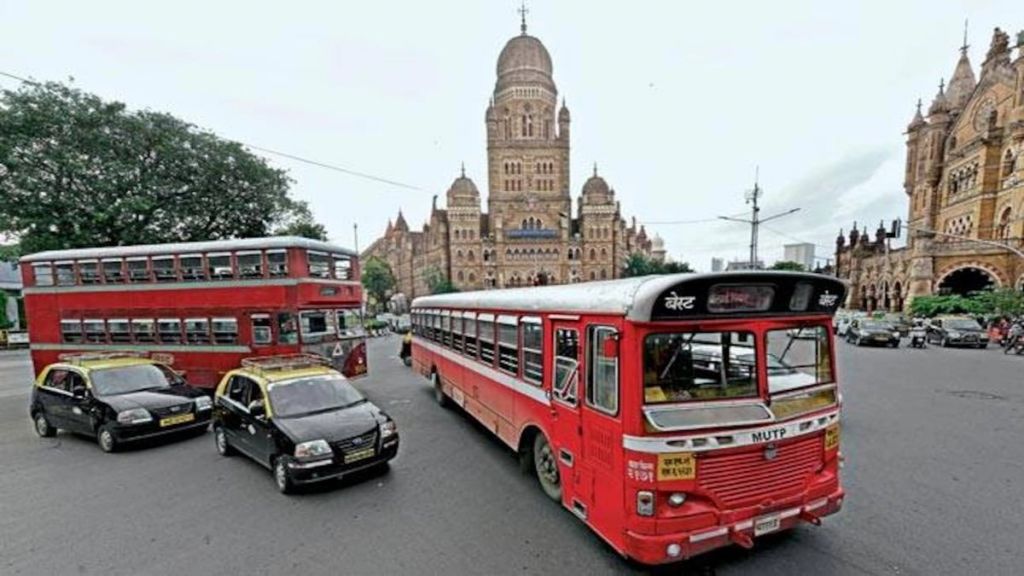
Mumbai: As the state polls draw closer, the city is buzzing with political promises, debates and campaign rallies. Politicians are leaving no stone unturned and making rounds to every street corner, trying to woo the voters.
However, one crucial issue seems to be missing from the discussions, which is the steady decline of Mumbai's public transport system, particularly the bus services provided by Brihanmumbai Electric Supply and Transport (BEST) Undertaking.
Once considered the city's second lifeline after local trains, BEST buses are now facing an existential crisis, which has made the daily commute of over 35 lakh Mumbaikars increasingly difficult.
Despite being a significant citizen-centric issue, no political party has included the revival of BEST in their election manifestos, which showcases the indifference towards the suffering of the commuters. In this report, which is part of the 'Save BEST' campaign, The Free Press Journal delves deeper to understand the issues plaguing the once-reliable system and how they are impacting not only the passengers but also the BEST staff.
Shrinking fleet, longer wait times, increased reliance on contractors
The BEST fleet has dwindled to just 3,000 buses, with nearly 70% of them being operated under wet lease agreements with private contractors. The dire situation highlights the growing reliance on contractors to sustain the public transportation services.
The existing strength is a stark contrast to 2007 when the fleet comprised more than 4,600 buses. The gradual reduction in the number of buses has left commuters waiting longer at bus stops, particularly during rush hours.
The growing reliance on wet lease buses has only exacerbated the problem. “BEST should own more buses, but due to a lack of funds, we are dependent on contractors,” said a senior official speaking on the condition of anonymity. “We are seeing longer queues and slower services,” said Sadhana Chavan, 54, a resident of Mulund. She lamented, “It’s frustrating that no political party is focusing on solving the transport issues that affect lakhs of Mumbaikars every day.”
Lack of funds root cause
At the heart of the crisis is a lack of funding for the procurement of new buses. With the shrinking fleet, there are fewer buses on the roads to meet the demands of Mumbaikars, leading to overcrowding and increased waiting times.
“Many drivers and conductors are being reassigned to other departments of BEST because there aren't enough buses to operate. It’s a tough situation for all of us,” said a BEST bus conductor, who wished to remain unnamed.
Worker unions, who have been fighting for years to maintain a fleet of at least around 3,300 BEST-owned buses, are growing increasingly frustrated. “If the direct procurement of new buses does not start soon, BEST-owned buses will disappear from the road in the next few years,” said a traffic department official.
Unfulfilled promises to workers
The decline in the fleet has also impacted BEST workers, who expressed their frustration over not getting their Diwali bonuses yet. Although the BMC has deposited the funds, the money has not been credited to employees due to the election code of conduct.
“It’s been almost two weeks since Diwali and we still haven’t received our bonuses. The BMC has deposited the funds in the account of BEST, but it has yet to be distributed to the workers,” said an official.
Inside sources said that the administration has sought approval from the competent authority to release the bonuses, but it has not yet received not, leaving the employees in lurch.
Political indifference, public discontent
The looming crisis is conspicuously absent from election manifestos. “It’s disheartening to see that every party is busy with divide-and-rule politics, while ignoring the very real issue of public transport,” said Ramesh Kamble, 56, a commuter from Vikhroli.
“We depend on BEST buses for our daily lives; whether it's going to work, visiting a hospital or attending school. The system is failing and no one seems to care,” he added.
Despite protests by unions and growing public discontent, the political parties have not prioritised the BEST’s much-needed revival. “Without immediate intervention and investment, the future of BEST is bleak. Mumbaikars deserve a reliable, affordable and efficient public transport system. It is high time that political leaders and the authorities take action to restore BEST to its former glory of being the city's lifeline,” said Sandesh Shirke, 48, while waiting at length for bus number 115 at CSMT on Friday.